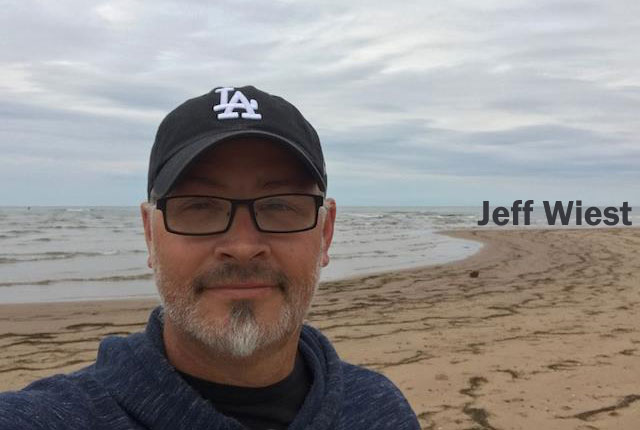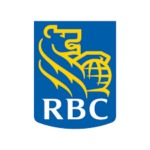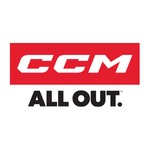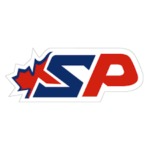Story courtesy of Swan Valley Star and Times
The Bluenose II is an iconic Canadian institution. Anchored in the harbour of Lunenburg, N.S., the replica schooner is a popular tourist attraction, drawing visitors from all over the world to the small Atlantic community.
For us land-locked Western Canadians, we might best recognize the Bluenose by simply looking at a dime in our pocket. The ship on our Canadian 10 cent coin is largely based on designs for the original Bluenose.
That famous ship is something former Swan Valley Stampeders head coach and general manager Jeff Wiest gets to look at every day. The inaugural bench boss of the Stampeders, who came to the Valley back in 1999 to help usher in the era of junior A hockey to the community, is now an environmental and safety manager for High Liner Foods. It’s about as far removed as one can get from riding the buses on cold winter nights making a living as a junior hockey coach.
“We’ve lived in Lunenburg for four years – I was headhunted by High Liner and I pretty much couldn’t refuse,” said Wiest. “Much like me coaching the Stampeders, I looked at this as a heck of a challenge and opportunity.”
There have been several men who have manned the bench of the Stampeders, but Wiest will always go down in history as the first. Coming over to the Valley after a successful run with the Winkler Flyers – highlighted by a league championship in 1997-98 – Wiest had to build something from nothing.
From the earliest days, Wiest saw the Stampeders as a fantastic challenge, and felt it was the right time to leave the Flyers, where he had guided the team for parts of six seasons.
“The idea was that Swan Valley was forming a franchise, and putting your stamp or fingerprint on something from the ground up was a pretty cool idea,” said Wiest. “We had a five-year plan in Winkler and we achieved that plan. So after we won a championship in ’98, where do you go from there? I thought Swan offered a new opportunity.”
Wiest was going to bring along his then assistant coach Ken Pearson.
“They approached Kenny, and Kenny approached me, and we made the decision to come up together,” said Wiest. “The idea was that we would both resign from Winkler, Ken was going to be the head coach and I would be the GM, as I wanted to spend more time with my family.”
But, that never ended up happening. Pearson stuck around in Winkler and was promoted to head coach (where he has coached off and on for the majority of his career), while Wiest moved onto Swan Valley.
Wiest says budgetary concerns meant they could not have a separate coach and GM. That’s how Wiest came to the Valley alone (and isn’t it fascinating to look back 20 years later and wonder what might have happened to the entire MJHL if both Pearson and Wiest had moved to the Valley together?). That led Wiest to an extremely busy few months, as he endeavored to build a roster and ice a competitive team for the fall of 1999.
“When you think about those communities in and around Swan Valley, reaching down to almost Dauphin and up towards OCN, and over to Kamsack, Sask., that’s a lot of kids and a lot of opportunities (for us),” he said. “We had 120 kids at our first camp, and from that group, we got a lot of players for that inaugural team.”
Wiest also made sure to look outside the bubble and bring in some players with experience, or who were known commodities.
“We recruited some other players like the Mike Gabriel’s of the world – Trent Tomyn, and Lance Muttimer,” he said. “But, for the most part, we got our players from the first camp.”
They also brought in players such as Justin Boisvert, Valley native Dallas Anderson, and future professional netminder Barry Brust, who joined the Stampeders as a 16-year-old, moving back to the Valley where his family had previously lived and had strong ties to.
With his team formed, Wiest’s young squad had to find their way, and early successes were difficult to come by. But, as the season wore on the team gained confidence and picked up victories, culminating with the epic one-game showdown in Neepawa on the final night of the regular season with the winner getting the final playoff spot. The Stampeders were victorious, making the playoffs in their inaugural season.
“That is one of the highlights of my coaching career,” said Wiest. “You look at how we started, we had a lot players who played either junior B or midget before, and we took a terrible road trip to start the year. We went to Flin Flon and The Pas (OCN), and literally got the crap kicked out of us.”
“We had two kids from North Dakota who left, as they couldn’t stomach the physicality of that road trip.”
Wiest said those early games hardened the team, setting the tone for the rest of the season.
“We had to overcome getting used to playing junior hockey, but by the halfway point of the season, and with the addition of a couple of mature kids, we were able to turn the corner, and learned to play tough,” he added, evoking the memory of such legendary and capable Stampeders like Chris Mannle who would stand up for a teammate at a moment’s notice. “We got goaltending. We got lucky, and we got some bounces.”
He also points out a 31-win season for the expansion Stampeders was on par with what OCN had done when they came into the MJHL, and takes pride for helping put together one of the more successful expansion records in MJHL history.
“It ranks right up there,” said Wiest. “In terms of a sense of accomplishment, it was pretty good.”
The Stampeders put together another successful year in season two under Wiest, equaling their win total while losing less games in regulation. But the Allard Division was a stacked one at the time, headlined by the OCN Blizzard who were in the midst of their dynasty run. Swan Valley ultimately ended up playing the Blizzard in the playoffs both years, losing in five games on both occasions.
“I really do believe in that second year that we did have as good a team as anybody,” said Wiest. “We did lose some games down the stretch that were pretty important, and would have had us in third. So we met a team who had won a championship and was hungry for more. That was a tall order.”
And that was, ultimately, it for Wiest. The team didn’t offer to renew his contract, and the two parted ways.
“We made the Swan Valley, and Swan River, our home for 10 years. We loved that community. I enjoyed being president of minor hockey and helping improve that. And, coaching Parkland in the 2010 Manitoba Winter Games was a blast. Swan River got me to where I am today, and I’m happy with my life and where I am,” he continued.
Interestingly enough, Wiest says he is pretty much done with hockey. And, it sure doesn’t sound like he misses the grind.
“Honestly, I’m done with hockey,” he said. “I don’t watch it, I don’t play it, and I haven’t had skates on in six years. I just don’t have a desire for it anymore.”
The politics of the game along with Shane Allard’s death – a billet and friend – while Wiest was coaching the Dauphin Kings contributed to his feelings.
Now, Wiest works at a challenging job he enjoys, while raising his family in one of the most scenic communities in Canada.
“I can walk out of my office and take a few steps and watch the Bluenose II come and go every day,” he said. “There’s worse ways to live your life.”





































